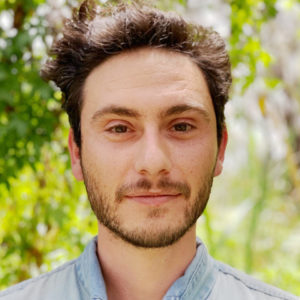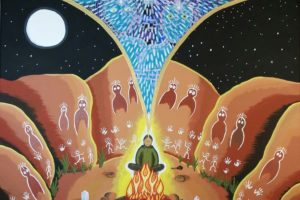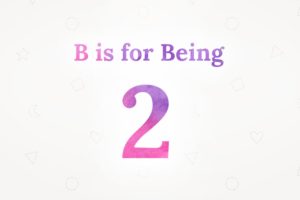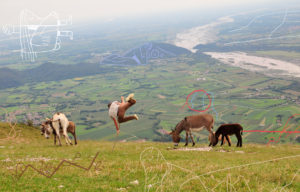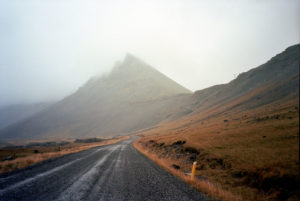Being vulnerable and expressing ourselves despite the judgment of others
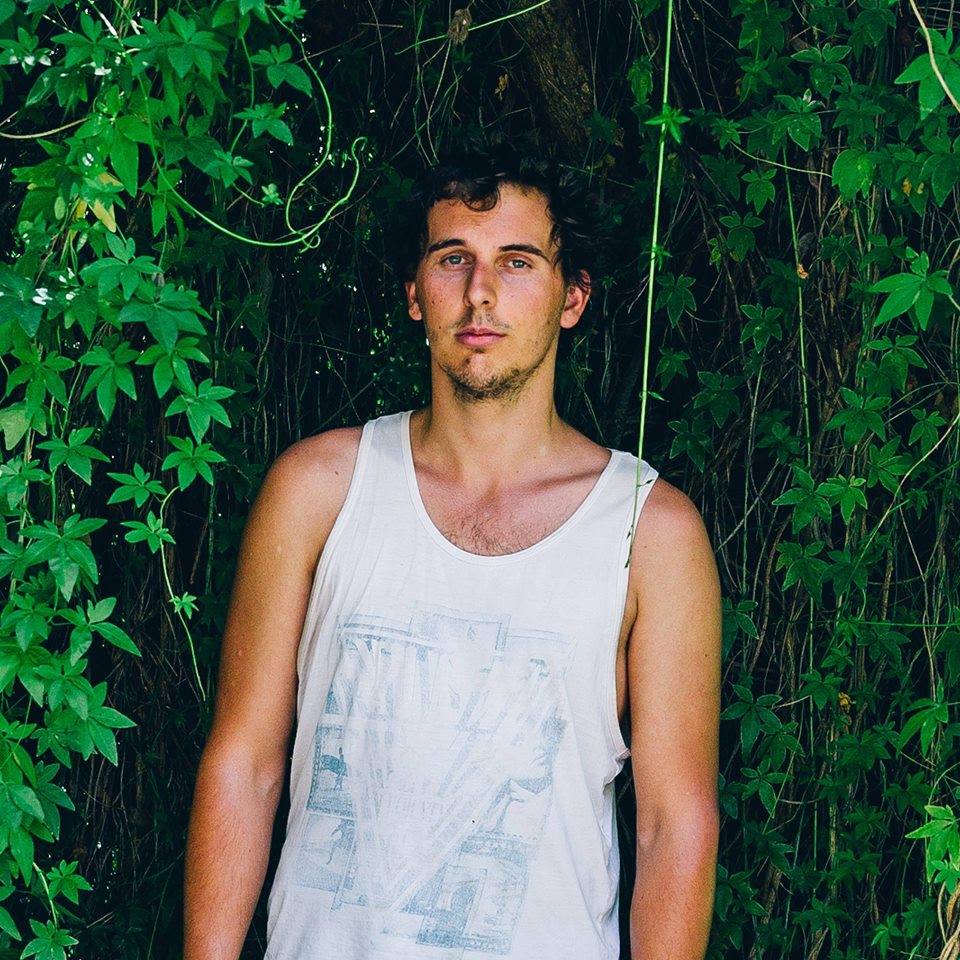
Elliot is continually stepping out into the unknown and challenging his comfort zone. He does this seemingly unaffected by the judgements and beliefs of others.
I asked about the earlier years of his life and he shared with me that things haven’t always been like this.
As a kid he was cut down for asking too many questions and experienced rejection from others when sharing his early video projects. As a result he stopped sharing himself with others.
But overtime he’s managed to step outside external judgements and beliefs and express himself with even more freedom and authenticity.
We look at how we can give the gift of listening to each other; how Elliot steps outside his comfort zone, and his latest project – 30 Days of Dance – which involves him dancing in public everyday for a month, making himself vulnerable for all to see and encouraging others to join him in this open form of expression.
Highlights and Takeaways
- Listening to others is a free gift you can give to anyone.
- By listening to others with no intention of responding you give them space to share themselves with you.
- People’s personal stories (past beliefs which are based on their own experiences) can be triggered by how we express ourselves. Their reactions have nothing to with us and what we are doing.
- We are conditioned to think if something isn’t pleasing or entertaining then it is wrong.
- We shut down parts of our expression because we experienced a painful situation and feel the expression of ourselves was the cause of that painful experience.
- Having an experience outside of our comfort zone shows us we are capable of doing things we previously thought we couldn’t do.
- When you’re vulnerable with others you encourage others to be vulnerable with you.
- We attempt to keep other people happy because we want to feel accepted and feel that we belong.
- We can feel that we have to act a certain way just to be accepted. But by being yourself you naturally attract people who accepted you as you are and not for who you’re trying to be.
- Removing the importance of what other people think of us allows us to step outside of our comfort zone and just be ourselves.
Show Notes
- Ben: When did we first meet?
- Elliot: We met in the middle of Hay Street mall during an event The Liberators held which was about dancing in public and providing a space for people to express themselves freely. I have a video background and you have a video background and we came together as videographers and we were talking about the direction of the night.
- Ben: That’s right, I remember. There was a DJ being carted around on a trolley. The intention of that event was to encourage members of the public to just dance, it was a Friday evening after work. It was to encourage everyone to just dance and express themselves.
- Elliot: I would say Break the loop, break the routine. Break out of. “OK, it’s Friday. Let’s go out to a pub and have some drinks.” We’re providing a space to try something different. If you feel you have the confidence to step out of your comfort zone, here’s the place.
- We’re facilitators; we’re there to provide a space for others to come back to your core and release your inner-child without the fear of looking bad in front of others, really giving up the judgments and the internal dialogue that goes on in your head like, “what will happen if I do this?” It’s a neutral space, you can come into however you desire.
- Ben: You mentioned space for the inner-child to be expressed. What do you see as the inner-child?
- Elliot: The inner-child is this kid in you that really wants to go out there, dance about, just pure joy. The evolution of our existence is there’s a time in your life where you have to grow up and focus on sustaining your existence and part of that process really kind of limits how you can express yourself.
- The one thing I’ve heard from others is, “why don’t you grow up?” and I say, “when was the last time you expressed yourself? Because I am grown up.” I’m running a business, I’m doing this and I’m doing that, but I like to express myself and I don’t limit myself through the judgments and opinions of others.
Gifting the Space of Listening
- Ben: Has there been a time when you have been affected and limited by the judgments and beliefs of others?
- Elliot: Yes, definitely. I think high school was a big lesson. I think when you’re in that headspace; that environment, you’re competing with others to look good. People are portraying an image so that they feel they’re accepted in these different groups and I think near the end of high school for me I woke up to that and realised this isn’t me, this isn’t an authentic self. And it kind of got boring, I saw past that reality and started to follow my beliefs and go with what flows with me.
- During the early exam period, this was the end of the year eleven. I was there for anyone who wanted to have a chat. I would enquire with people, “how are you doing?, how are you finding this exam period? Are you doing OK?, are you happy?” and people were drawn to that. There was no bullshit, that was just me and that’s how I created true authentic friendships and I’ve still got some friends to this day from really taking that step. That’s one of the strengths I’ve really noticed in myself. I’m like OK this is a strength I have, I can provide this, I can give this, and that’s evolved over the years;
- Ben: This gift of holding space for a conversation to unfold and you’re genuinely interested in how the other person is doing.
- Elliot: Yeah, I’ve done a whole heap of courses especially in communication and one of the activities we took part in was intent listening; listening without the intention of responding. I’ve nicknamed it ‘breathing space’; providing the space to breathe and really just being with the other person’s conversation and not limiting them by what you want to provide to the conversation.
- Ben: So not just waiting for them to finish speaking so you can tell them the really interesting thing you have to say but actually leaving the space for them to say whatever they need to say and there’s expectations on how you want the conversation to go or not, it’s just going to flow how it does and you’re completely accepting that.
- Elliot: Definitely. And there are periods where I won’t even say anything, I would just be there as someone to listen and it’s amazing to watch where the conversation goes and I’ve said a little thing and then that’s really started this amazing conversation.
- I’ll ask a question of something really personal to someone. Like a friend of mine who’s an artist, she runs a few different food trucks and I said, “what are you really passionate about, what really drives you?” And she said, “I love my art. I’ve always enjoyed just doing pencil art work.” and I kind of took a step back, I was like OK, I can respond to this or I can really listen and we can dive deeper into this passion. And I could see she was really getting passionate and enthusiastic about it and I realised well I’m gifting this space right now and I just let it evolve.
Asking Questions as A Kid and Being Told Not To
- Ben: You mentioned that back in high school, when you first started tuning in with other people and asking how they were doing with the exams, you felt like this was you being authentic. I’m just wondering how did you feel that in the moment, what did it feel like?
- Elliot: I think going back to the inner-child I always had this inquisitive nature, I always questioned everything around me; I was the kid that asked a hundred questions, and early school time I kind of got cut by that. I asked a question and the whole class put me down. Later in my high school years I woke up to that and realised, “No. There’s no need to self-censor myself right now.” I’m genuinely interested in this person in front of me, I really want to find out more about them.
Elliot: People have amazing stories to tell. They don’t get the time and space to really blossom through conversation.
- Ben: That’s a really beautiful thing because you mentioned you were asking all these questions and people were putting you down. I don’t know how long you struggled with that; censoring yourself and not asking these questions that were coming from your inner child, but eventually you did come back and start asking those questions again, and not only we’re you asking questions you were gifting more space to others even though you had already been cut down by people putting you down for asking so many questions. You came back with this interested curious genuine question for them and gifting them the space to really listen to their answers.
- Elliot: From that I really saw this is powerful and this is a free gift that doesn’t require anything. It just requires the space. People are powerful and they need to realise that they’re powerful. One gift that we can give to each other is being a space of free communication and self-expression.
Coming Through Self-Censorship
- Ben: The times when you felt limited by yourself – like there’s something you’ve wanted to say or do but haven’t – has there been any particular moments of your life that come to mind? Significant moments of repressing yourself or censoring yourself?
- Elliot: I was probably fifteen when I saw a YouTube video called Where is Matt. It was a guy that was traveling around the world who would dance with different communities and cultures. So I thought let’s throw a Daft Punk song on (Around the World) and dance around the world of my street.
- I was using a laptop and a webcam, this was my early days of video editing and I produced a video. And I wanted to share that. I took it to a group of people that were part of a class of mine and they were like, “oh this is stupid, you’re an idiot, why did you dance?” That really cut me and I felt like I had to step back. Oh no! I can’t express myself, I can’t do this, I can’t do that.
- Moving forward from that, the thing I realised was – no, there was something there. Dance is powerful, it’s a form of expression and I was using my strengths of video producing and that was their response.
- In the world of looking good and in the world of different social groups in high school, this (video) is different, this is going against looking good, this is someone who’s being raw and being themselves and they might have seen that as threatening so their first response was, “Oh this is stupid, why are you doing this?”
Elliot: I took my whole YouTube channel down because of fear.
- Elliot: Part of me still thinks, “is this good enough? what’s the response I’m going to get from this content?”
- Ben: Why do you think people made those comments, why do you think they said those things?
- Elliot: I think it triggered something in their existence. There might have been something similar that may have happened to them. They might have wanted to dance, or they may have spoken up about something, and someone responded in a negative sense and they created a story in their mind about that moment and it became part of their existence. They had a response to that (the video) because they’re like, “oh, I can’t do this why should this person be able to do this?”
Shutting Ourselves Down to Protect Ourselves From Pain
- Ben: It’s interesting the concepts of right and wrong. I’ve been exploring that with Free Flow Fridays. I’m doing that as a space where I’ve been filming myself playing the piano or dancing with yourself (Elliot). It’s interesting how we’ve been conditioned to think that if something sounds bad or isn’t incredibly entertaining that it’s wrong in some way. I don’t know where that comes from but someone somewhere along the line has put them down for just expressing themselves. Their inner-child is in this raw authentic state and they’ve been open and vulnerable not knowing that someone else would come along and be like, “Hey that’s crap. What do you think you’re doing?” and in that moment being cut really deep and then all these defences go up for them.
- You lock that part of you down because it’s seen as the cause of feeling that pain again. It’s seen as the cause of having someone else criticise or judge you. So you shut it down and don’t express yourself in that way anymore.
- I’ve found it so difficult becoming aware of those blocks, those shut down parts of me that have been hurt; and also beginning to heal them with the courage and compassion it takes to undo those knots of pain, to come back into that feeling and move through the original pain and acknowledging how painful it was. Reconnecting with that part of your inner-child which was shut down.
- Every time I do this it opens up a new space for energy to flow more freely and I’m able to express myself a little bit more and take more steps forward in my own self-expression.
Healing Our Deep Wounds
- Ben: But that’s my experience of it. How have you done it, how have you come out of your own deep wounds?
- Elliot: I think it’s through education, through some courses I’ve taken part in. One of the activities that we did was seeing those moments as stories that you have created, narratives that you have built based on experiences; seeing those experiences as stories you have created. That that’s the thing I’ve noticed between a child and an adult; over the years these stories have been acquired and they’ve had any impact on the person these grown adults are.
- The act that you portray is impacted by these experiences, these circumstances. Maybe I got up and started singing and everyone laughed at me or something, this is just an example but maybe I’m like, “I’m never going to do that again because that might happen again to me.” This is where I really challenge my comfort zone.
- The whole thing behind communication; what if I say something wrong and people don’t like me? Or, If I really express my opinion I’m going to lose my friends. This is where I really push myself out of my comfort zone.
Stepping Out of Comfort Zones
- Elliot: I was catching trains and buses on a regular basis and I started conversations with strangers on the train because I really wanted to push myself out of that fear of looking good. And what I got out of it was new friendships and really listening to some amazing people that really aren’t heard.
- And this is something I’ve noticed, when you’re vulnerable people want to be vulnerable back because they can see that you’ve let your guard down to them and they’re drawn to that and want to share.
- People want to be heard and they have something to share. And there are a lot of people that you don’t hear because they’re fearful of social anxiety, they’re fearful of so many things and it’s this self-limiter that they’ve activated in themselves.
- I guess I could talk about how the beginning of communication evolved to self-expression, noticing that I can hold a conversation with a stranger, these different people, I can be vulnerable, can I be vulnerable in different areas?
- Ben: So you showed yourself you had the ability to do that by stepping outside of your comfort zone and starting those conversations with people on the train and through that experience you realised you can do this. How did you come to taking that step outside of your comfort zone, what helped you to actually say those words, to initiate that conversation with someone on the train?
- Elliot: I think it all relates back to workshops and courses I’ve taking part in. I remember one moment I stood up in front of 150 people and said, “Isn’t it weird not to be weird.” And the whole group just broke into laughter and I realised speaking my mind really has an impact.
- I think I’ve seen myself as a people pleaser in the past and a part of me still is and worrying that if I really voice my opinion I’m going to lose a certain group of friends because these opinions clash. But when you are authentic and you do hold to your own beliefs you draw others who share those beliefs with you. I think there’s only one way to be and it’s to be yourself.
Pleasing Others to Feel Accepted
- Ben: Why do you think we try so hard to please others?
- Elliot: Because we want to be accepted by them, we want to connect. It is human nature to feel accepted and to feel that you belong. But I think it’s important to be yourself in whatever moment you are in and you’ll be drawn naturally to your tribe.
Elliot: Authenticity is powerful. You grow as a person when you’re authentic.
- Ben: All those moments where you’ve stepped outside of your comfort zone it sounded like you’ve come into a place where you are like, what do I have to lose?, I don’t care, I’m just going to do this. So removing the importance of what other people think and in that way it’s enabled you to step outside of your comfort zone and be authentic and try these new things. As a result of that you see “I’m capable of this.”
- It’s interesting how you first had to not give a crap about what other people thought and that empowered you to then be yourself.
- Right now your current project is the 30 Days of Dance project.
30 Days of Dance: Being Vulnerable in Public for a Month
- Elliot: It’s about constantly putting yourself in a vulnerable state.
- I climbed a mountain down in Denmark, Western Australia with all my camera gear and I’m like, ”This is 15 kilos of gear. I’m climbing up at least a kilometre of incline.” Part of me was like, What’s going on, should I do this? Should I go back to the car? But I got to the top and I’m witnessing the southern coast of Western Australia and I’m just like wow, isn’t this an awesome backdrop, I’d love to dance on this mountain right now. So I set up the camera and started recording.
- Part of me wanted to start the project to throw myself in a bit of a routine and another part of me wanted to really commit to a full 30 days to challenge myself and provide the space for others to see if they can cross that bridge and step out of their comfort zone.
- It started as me just dancing in different places by myself and then people were like oh that’s really cool, can I join in and I thought well I can really provide a space of vulnerability and self-expression right now, so I started contacting people and asking, would you like to join me today in 30 minutes of dance and share this experience
- I am on day 14, but along the way I’ve definitely had my challenges and there are days I’ve woken up and I really don’t feel like dancing today; Or, I’m going to have to dance in a public space or I’m going to have to look bad, but after taking part in that dance I’m like wow, this is powerful, this is evolving.
- I think it’s amazing to share the space because you could be that one person who’s dancing in a beach or on a hill or in the middle of Kings Park with 40 or 50 people and they’re like what is this guy doing, or what are those people doing? Why are they dancing? The internal dialogue of, “oh look at those idiots dancing”, but you’re gifting them something in that moment because you’re saying to them through your actions it’s OK to dance in public.
- Ben: Even if they don’t accept it in that moment, even if they put it down and they’re like, “look at those weirdoes over there.” I think just the fact that they’ve seen it is enough for them to take it in as a possibility, and they start thinking about it. They might be thinking about when their at home two weeks later and they’re like, “oh my God those guys were dancing.” So it kind of stays with them.
- Elliot: Yeah definitely, and I think learning to let go of whatever is going on in your head and just being in that moment and being a hundred percent in that moment.
- There are going to be people around you that give you weird looks. I’ve had kids give me puzzled looks. I was dancing on a hill in Mosman Park and a kid stopped on a scooter and was staring at me the whole time. They looked like they were confused and then the mom comes along and she’s frozen staring at me. Both of them had a puzzled look and I yelled out, “you guys want to join me?” and they were like “what? You’re calling out to me?” And I’m like, “yeah do you want to join me?” And they kind of walked off.
- Ben: They didn’t make any response?
- Elliot: Yeah, there wasn’t anything out of that, but I’m sure that kind of ignited something.
- Ben: Are you going to publish these 30 Days of Dance once you’re done?
- Elliot: Yeah definitely. The idea is to publish a compilation of the 30 days. I’ll most probably publish it to one of the Facebook pages (LetsBeRandom1)
- Ben: If people want to find out more about those projects is there a place on the worldwide internet that they can find you?
- Elliot: The best place to go is my photography page: Cahill Films.
- Ben: Is there anything you want to add before we wrap this up?
- Elliot: This is something I wrote after getting back from Denmark and dancing in Albany.
You’re no longer holding me under, barely able to grasp for air, I’m taking charge and I mean business. I don’t care if you despise me or hate me. I’m just here to be. To no longer question my values over your acceptance.
To no longer worry if you agree with my ways.
I’m a bird in life and I’m ready to fly.
You’re lies wont discourage my ambitions to strive.
I don’t have time for your bullshit,
Neither do others,
I’m ready to dance, to sing.
I’m ready to challenge, to inquire.
You may question my intentions,
Know this.
If you seek adventure, let your inner child wild.
Come on a journey and find yourself.
That crazy animal, fighting to survives ready
To be set free.
So I ask you this, are you ready?
To take these steps in time
To climb to unbearable heights.
To seek the wild and the wicked.
To leap to unheard of happenings.
Mentioned in This Episode
- LetsBeRandom1 (Facebook page)
- Cahill Films – regular updates and events from Elliot (Facebook Page)

